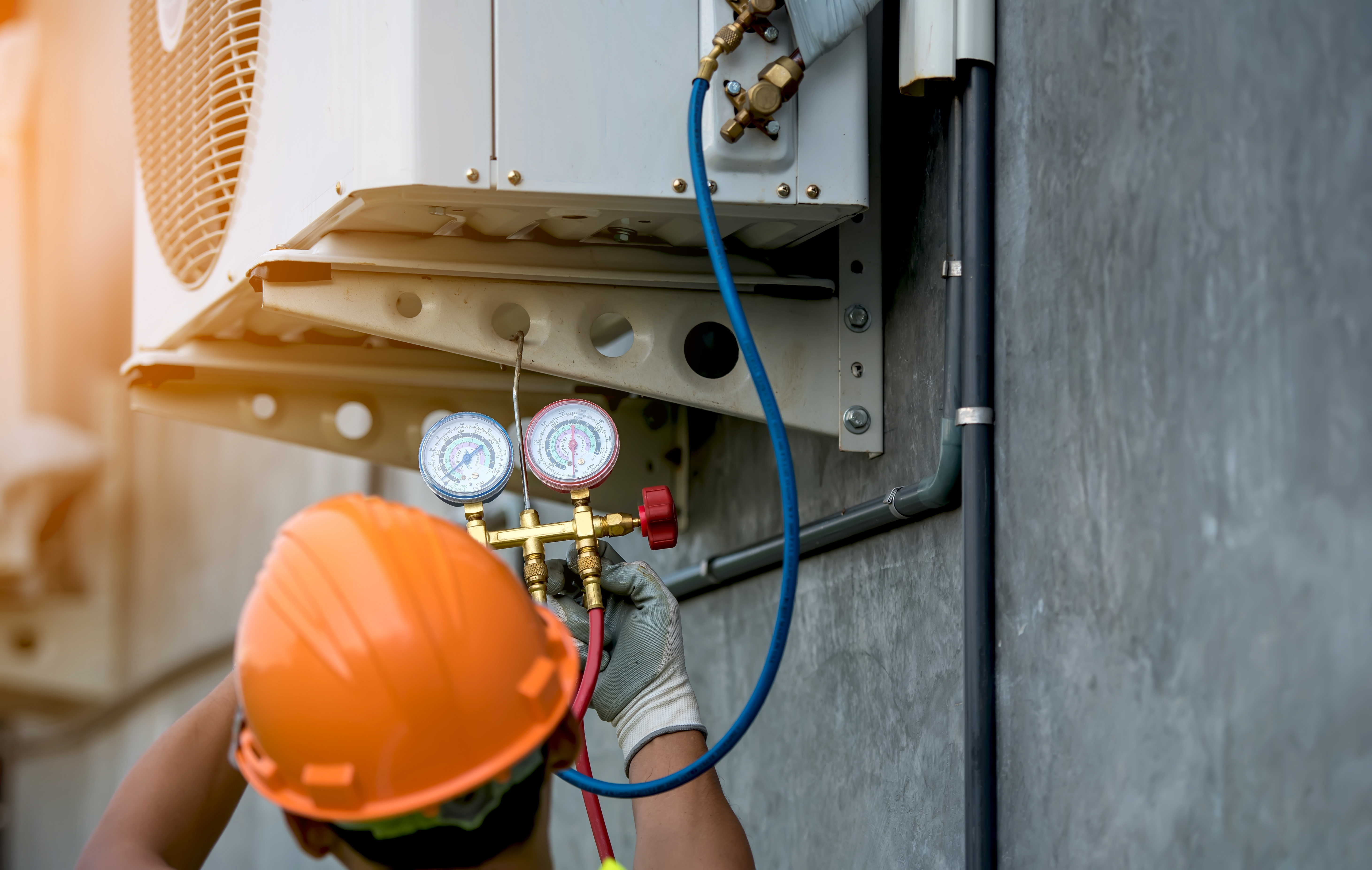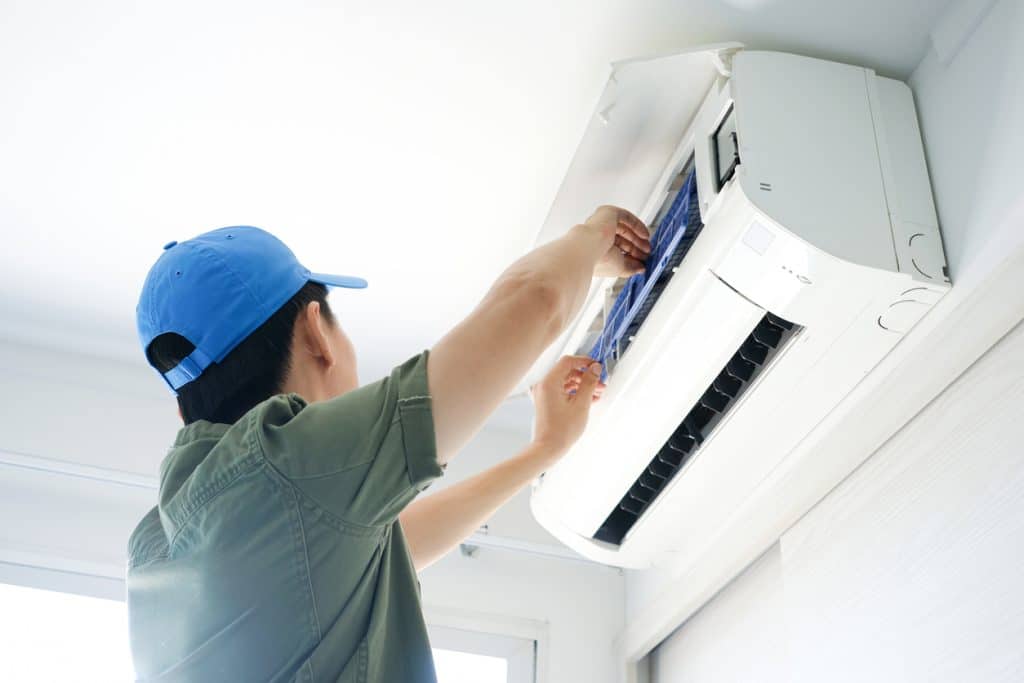Why working with an AC repairman can improve indoor comfort
The Relevance of Heating And Cooling Understanding: Uncovering Reasons For AC Troubles for House Owners
Property owners frequently forget the significance of comprehending their HVAC systems. Identifying typical indicators of cooling troubles can cause prompt interventions. Issues like inadequate cooling or uncommon sounds are not just inconveniences; they can suggest much deeper concerns. By checking out the source of these issues, home owners can enhance system effectiveness and expand its lifespan. What are the most common concerns that can arise, and how can they be properly addressed?
Typical Signs of Air Conditioning Issues
Exactly how can homeowners determine issues with their a/c systems before they rise? Acknowledging usual indications of air conditioning troubles is vital for timely maintenance. One prevalent indicator wants cooling; if the a/c unit fails to lower the interior temperature level, it may signify underlying issues. Uncommon noises, such as grinding or hissing, can likewise indicate mechanical failings or loose parts - Fix broken Air conditioner. Furthermore, house owners should watch out for unusual odors rising from the system, which could recommend mold growth or electric problems. Frequent biking on and off, referred to as brief biking, can show thermostat problems or refrigerant leakages. Additionally, an increase in energy costs without an equivalent rise in use may indicate inefficiency. By staying sharp to these indication, property owners can prevent extra significant concerns and pricey fixings, guaranteeing their air conditioning systems run successfully throughout the warmer months

Recognizing Cooling Agent Issues
Refrigerant problems can significantly affect the efficiency of a heating and cooling system. House owners should recognize the signs of reduced refrigerant levels and the importance of identifying cooling agent leakages. Dealing with these problems immediately can prevent further damage to the system and assurance optimal cooling efficiency.
Reduced Cooling Agent Degrees
A common issue that house owners might experience with their HVAC systems is low cooling agent levels, which can greatly affect the system's efficiency and efficiency. Refrigerant is important for the cooling process, soaking up warm from indoor air and launching it outside. When levels go down, the a/c device has a hard time to cool down the room successfully, leading to boosted energy intake and potential system pressure. Signs of reduced refrigerant consist of inadequate air conditioning, longer run times, and ice formation on the evaporator coils. Property owners might also observe unusual sounds as the compressor functions harder to make up for the shortage. It is crucial for homeowners to comprehend the importance of preserving correct refrigerant levels to guarantee peak HVAC performance and long life.
Refrigerant Leaks Detection
Where might a house owner start when faced with the possibility of cooling agent leakages in their HVAC system? The initial step entails keeping an eye on the system's performance. Indications such as reduced cooling down performance, ice formation on coils, or hissing sounds might show a cooling agent leak. House owners ought to likewise examine for visible signs of oil deposit, typically an indication of a leakage. Using a cooling agent leak detector can supply even more precise recognition. If uncertainties continue, speaking with a qualified cooling and heating technician is essential, as they have the know-how and equipment to find leaks properly. Trigger detection and repair work of refrigerant leakages not only improve system effectiveness yet likewise stop possible ecological injury, making it a necessary element of cooling and heating upkeep.
Electrical Failures and Their Effect
Electric failures can substantially influence HVAC systems, particularly through problems like breaker malfunctions and malfunctioning wiring. These problems not just interfere with the system's performance yet can also result in costly repair services and security risks. Comprehending the ramifications of such failings is crucial for house owners to maintain an effective and secure heating and cooling atmosphere.
Circuit Breaker Issues
Exactly how can circuit breaker concerns impact the performance of a HVAC system? Breaker function as important safety tools that manage electric flow to heating and cooling units. If a breaker trips frequently, it interferes with power supply, bring about irregular check here heating or cooling. This can trigger considerable pressure on the system, causing ineffective procedure and prospective damage to elements. Home owners might discover enhanced energy costs due to the heating and cooling system's struggle to keep wanted temperature levels. Additionally, repeated disturbances from tripped breakers can shorten the life expectancy of the air conditioner device, requiring expensive repairs or replacements. Normal upkeep of breaker is critical, as it ensures a stable power supply, ultimately improving the overall effectiveness of the heating and cooling system.
Faulty Wiring Consequences
Often forgotten, defective circuitry can have dire repercussions for cooling and heating systems. Electrical wiring problems may cause short circuits, leading to frequent breakdowns and enhanced repair work prices. Furthermore, improper circuitry can trigger ineffective power use, bring about greater utility bills and strain on the system. In severe situations, damaged circuitry can activate electric fires, positioning a considerable safety and security risk to property owners. These electrical failures can harm HVAC elements, resulting in expensive replacements or extensive repairs. Home owners should prioritize normal assessments by qualified specialists to determine and fix electrical wiring problems prior to they intensify. Recognizing the ramifications of defective circuitry can assist ensure the durability and safety of a/c systems, eventually safeguarding get more info both the home and its occupants.
Clogged Filters and Their Consequences
While several house owners may ignore the relevance of routine filter upkeep, stopped up filters can result in considerable consequences for cooling and heating systems. When filters end up being blocked with dirt, dirt, and debris, airflow is restricted. This decrease in airflow requires the system to function harder, causing increased energy intake and possibly greater energy costs. In time, this pressure can trigger damage on components, causing premature system failure.
Furthermore, clogged up filters can compromise interior air top quality. Pollutants and irritants may flow throughout the home, intensifying respiratory problems and allergies for passengers. Furthermore, poor air flow can cause the evaporator coil to freeze, leading to expensive repair services and inefficient cooling performance. Frequently changing or cleaning up filters is a straightforward yet essential upkeep task that can aid guarantee the long life and performance of HVAC systems, inevitably profiting both the home owner's convenience and their finances.

Thermostat Malfunctions Explained
What happens when a thermostat breakdowns can significantly impact both convenience and power efficiency in a home (HVAC contractor). A defective thermostat might stop working to precisely read the temperature, resulting in overcooling or not enough air conditioning. This discrepancy can trigger pain for owners and result in higher power costs, as the HVAC system functions more difficult than needed
Usual issues include dead batteries, which can make digital thermostats faulty, and loosened circuitry that interrupts communication in between the thermostat and the cooling and heating unit. Furthermore, outdated or inadequately calibrated thermostats may not respond properly to temperature level adjustments, additionally aggravating power inadequacy.
Home owners must be vigilant for indicators of breakdown, such as inconsistent temperature levels or unforeseen energy prices. Routine checks and understanding of the thermostat's capability can help determine problems early, ensuring peak performance of the heating and cooling system. Dealing with thermostat problems without delay is important for keeping a comfortable living setting and managing energy intake efficiently.
The Role of Normal Maintenance
Regular upkeep plays an important duty in making sure the longevity and effectiveness of cooling and heating systems. House owners that prioritize routine checks can protect against small problems from intensifying right into costly repair work. Regular upkeep normally consists of jobs such as cleaning up filters, examining ductwork, and checking cooling agent levels. These tasks help maintain suitable air flow and system efficiency, reducing power intake.
In addition, a well-kept cooling and heating system operates much more efficiently, supplying constant comfort throughout the home. Normal tune-ups can likewise prolong the lifespan of the unit, resulting in substantial cost savings over time. House owners are encouraged to schedule specialist inspections at the very least annually to determine possible problems early.
On top of that, many suppliers require regular maintenance to support service warranties, making this method not just helpful but often essential. Overall, understanding the importance of regular maintenance equips homeowners to protect their cooling and heating systems against unforeseen failures and boost their financial investment in home comfort.
Often Asked Inquiries
Just How Can I Boost My A/c's Energy Effectiveness?
Improving an air conditioning's power effectiveness entails regular maintenance, cleansing or changing filters, securing ductwork, guaranteeing appropriate insulation, utilizing programmable thermostats, and organizing specialist assessments to recognize and rectify potential issues influencing performance.
What Is the Lifespan of a Normal A/c System?
A common cooling system has a life expectancy of 15 to 20 years, depending on upkeep, use, and ecological elements. Routine maintenance can considerably extend its functional life and improve total effectiveness.
When Should I Replace My A/c System?
An a/c system should normally be replaced every 10 to 15 years. Indicators for substitute include regular repair services, rising power expenses, and not enough cooling, suggesting that an upgrade might be much more cost-effective and effective.
Can I Repair A/c Troubles Myself?
Yes, individuals can repair air conditioning issues themselves by checking filters, ensuring power supply, and evaluating for noticeable concerns (ac unit replacement). Intricate issues usually need professional assistance for exact diagnosis and secure repair work, ensuring suitable system efficiency.
Exactly how Do I Pick a Trustworthy Heating And Cooling Professional?

To select a reputable HVAC service technician, one should seek recommendations, inspect on-line reviews, read more verify licenses and insurance policy, analyze experience, and demand detailed estimates to assure top quality service and fair pricing prior to choosing.
Verdict
To sum up, a strong understanding of a/c systems allows property owners to successfully identify and address usual air conditioning concerns. Identifying indicators such as poor air conditioning or rising power costs permits prompt interventions, which can substantially improve system efficiency and long life. By remaining notified concerning possible problems like cooling agent leaks, electrical failings, and blocked filters, home owners can take aggressive actions to keep their systems, ultimately making sure comfort and promoting a healthier living environment. Normal maintenance stays crucial to this venture.